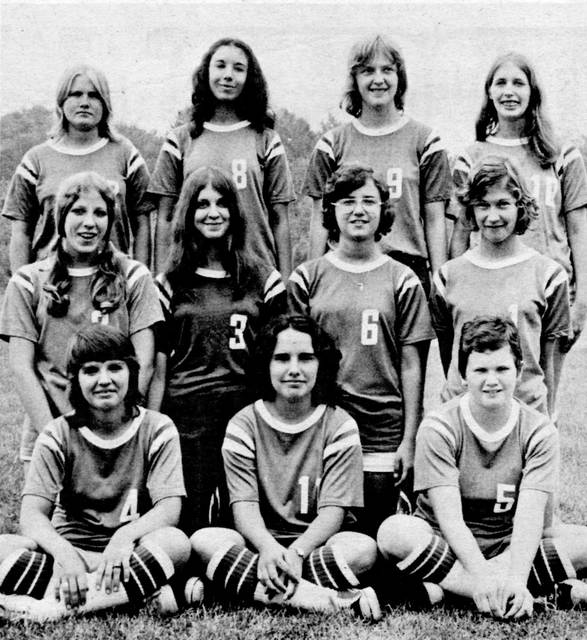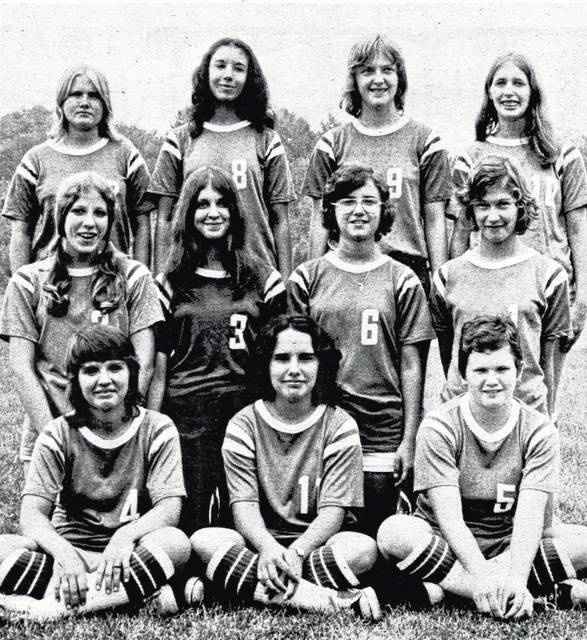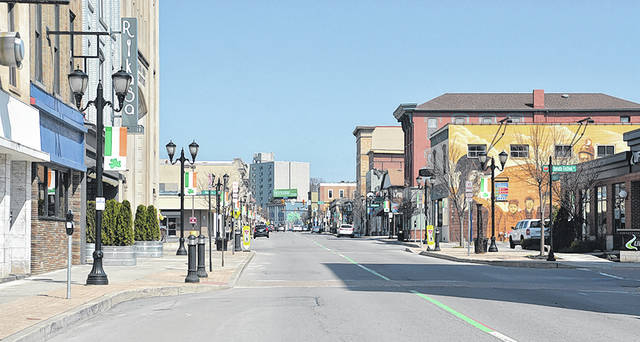1947 – 70 YEARS AGO
There was much “hullaballoo” made about the content of comic books and their link to delinquency in 1947. The Sunday Dispatch editorialized on the supposed damaging effects reading the books had on young people, stating, “It seems there are so many more important and vital things that have been causing delinquency for years and are still not remedied, that the lowly ‘Funny Book’ seems almost inconsequential.” The article went on to state, “Could it be any worse than reading from day to day of the lack of brotherhood among men, or of the continued warring and bickering among intelligent leaders of the world after thousands of their brothers and many of their fathers had died to outlaw such unchristian-like action? The average boy will grow out of his childish habits eventually if he is provided a proper environment and freedom to play in a healthy protected home. Then there is little to worry about delinquency.”
After World War II, the comics industry turned from writing about super heroes such as Superman, Captain America and patriotic war heroes such as Justice Society of America and Seven Soldiers of Victory and published more dark-sided crime and horror subjects. Dr. Frederic Wertham’s publication of “Seduction of the Innocent” in 1954 led to the possibility of government regulation to oversee the content offered to young people. In order to thwart that movement, the comics industry adopted a self-regulating Comics Code that lasted until the early 21st century but is no longer used today.
Seventy-five women fulfilled their personal pledge for favors received on their annual pilgrimage to St. Ann Monastery in Scranton by making the 10-mile hike from Avoca barefoot. Described as “well advanced in years,” the group had been walking to Scranton each anniversary for 10 years. It was said the pilgrimage was started among women of Pittston’s South Side as a token of gratitude to St. Ann to whom they “attributed many of the blessings they received following novenas to the saint.” The group grew in numbers during World War II when women vowed to complete the pilgrimage for the safe return of their husbands and sons.
1949 – 60 YEARS AGO
The Annual St. Rocco’s Church picnic was expected to yield a “considerable sum” as all the proceeds collected at the event were targeted for the St. Rocco’s Parochial School Building Fund. Committee members for the event were Ross Mastruzzo, Paul Sabella, Michael Policare, Dominick Aruzzo, Serafino Stuccio, Frank Pugliese, Joseph Restuccia, Joseph SanAngelo, James Aruzzo, Samuel Sciandra, Anthony DePhillips, Louis Novarra, Albert Orlando, Louis DeGroce, Alexander DelPriore, Ralph Mastruzzo, Joseph Graziano, Samuel Giordano and Michael Fiume.
After noticing the considerable amount of advertising of supermarkets in the weekday papers, The Sunday Dispatch asked local market owners why they do not advertise their grocery stores in the Sunday paper. In answer to that question, it was the belief of the market heads that Thursday is the only day on which to advertise their wares to the public on the premise that everybody buys on Friday to stock up for the weekend. The Dispatch opined that if that were true, then stores would close down on Monday, Tuesday, Wednesday and Saturday.
The saga of an Irish family that settled in America in 1800s came to light when 73-year-old Mamie Hawkesworth traveled from Butte, Montana to Pittston to visit relatives she had never met. Soon after arriving in America in 1874, Michael Lynch and his six sisters, Ellen, Katie, Bridget, Winnie, Anna and Mary and brother Pat Lynch parted ways and Michael moved on to Montana to live and raise a family. The sisters remained in Pittston. Hawkesworth found a long-lost photo of her father with his six sisters which also listed their residences in the Pittston. After traveling to Pittston and meeting with her cousins for the first time, she also was introduced to one of her more famous relatives in the area, Pittston Mayor John Allardyce. Hawkesworth’s aunts, all deceased at the time of her arrival, were listed as Ellen Lynch Hart, Bridget Regan, Catherine Cosgrove, Winifred Brown, Anna McHale and Mary Ruane.
1952 – 65 YEARS AGO
The Sunday Dispatch Inquiring Photographer asked Pittston residents, “During the summer weather, women like to strut around in shorts. Would you say that the reason men do not do likewise is because they are too modest?” Betty Jane Potomis answered, “Why, they lack eye appeal in shorts. Men are just jealous because they haven’t got the right type of figures for shorts.” Ellen Sullivan added, “I really can’t think of one man in town who would be able to do them any justice.” John Parente stated, “I’d feel ashamed of myself if I tried it, so that’s why I don’t wear them. I suppose women should be ashamed of themselves, but they’re not.” Helen Korick said, “Men don’t wear shorts for the reason that they don’t wear dresses; they’d look silly.” Vincent Aquilina answered, “Men aren’t used to wearing shorts as women are and they haven’t very nice legs to show.” Phillip O’Brien stated, “Men are too modest, their morals must be better than those of the women. If shorts were fitting clothing for men to wear in public, they’d wear ‘em.”
Master Sergeant Leo Patrick Gilroy, of Duryea, received a citation for his outstanding achievements while serving as a technician with the Preventative Medicine Control Detachment attached to IX Corps in Korea. Gilroy risked his life by exposing himself to enemy fire and threat of disease while taking soil samples of bunkers and forward observations posts after a case of hemorrhagic fever occurred among the ranks. Gilroy dusted each location, preventing a possible epidemic to other troops in the area. A 12-year veteran, Gilroy left for Korea in 1951.
1960 – 57 YEARS AGO
A system of faulty emergency pull boxes were replaced with 30 new emergency phone boxes located throughout Pittston. Installed by the Bell Telephone Company, activation of an emergency call would be enacted by simply picking up the receiver. Calls would route to the operator on duty at the switchboard at the city hall. The call would then be sent to the fire, police or ambulance.
The American Theatre featured “The Bells are Ringing” with Judy Holliday and Dean Martin, The Moonlite Drive-in screened “The Adventures of Huckleberry Finn,” starring Tony Randall. Bridget Bardot starred in a double feature at the Riverview Drive-In.
1967 – 50 YEARS AGO
There was a question circulating among city politicians as to whether Pittston would have been better off as a borough than as a city. The subject had come up many times in local discussions but no action had ever been taken to study the matter. Pittston was a borough until 1853, having been carved as a borough out of Pittston Township. With incorporation as a city, Pittston became a hub of industrial activity with breweries, meat packing houses, silk mills, wholesale houses, and mining.
With a peak population of approximately 18,000, Pittston city faced burdens that did not face small towns and boroughs when it came to mandated salaries paid to police and firemen and cleaning and maintaining of main thoroughfares. With its city status, Pittston had to adhere to the same regulations as cities with 50,000 or more in population. It was suggested that legislators change the status of cities according to population. According to pittstoncity.org, “As defined by the laws of the Commonwealth of Pennsylvania, Pittston is a Third Class City and operated under the state Third Class City Code, until 2013. Following approval by the electorate, Pittston City’s government began operating under a Home Rule Charter effective January 2, 2013.”
Patricia Belaski, of Duryea, was crowned Miss Wyoming Valley in a beauty contest attended by over 800 area residents during the Polish Radio Day co-chaired by Martin Satkowski and Adam Chmiel. Betty Wendoloski was chairman of the beauty contest.
1974 – 43 YEARS AGO
The Pittston High School Class of 1924 held its 50th anniversary reunion at Fox Hill Country Club. Those attending were Dr. Charles Adonizio, Regina Quinn Cawley, Elizabeth Rogers Evans, Ida Vitale Heston, Marie Frederick McGarry, Anna Lickowski Suback, Gertrude Voight MacDermot, Leo Morgan, Thomas Reilly, Rosario Valenti, Paul Alt, Marie Grier, Frances Hogan Heck, Janet Allford Hawke, Esther Tigue Pace, Joseph Bruno and Dr. E. Merton Hill.
This date in history:
1729 — The city of Baltimore was founded.
1733 — Society of Freemasons opened its first American lodge in Boston.
1865 — The worst US steamship disaster occurred. The Brother Jonathon, a paddle wheel steamer, sank with as much as $2 million in gold off the coast of Northern California near Crescent City. Hundreds of people died after the ship hit a rock near Crescent City. In the 1990s, Deep Sea Research found and salvaged 1,207 gold coins from the ship. California received 20% of the treasure and the rest was put up for auction in 1999.
1916 — German saboteurs blew up a munitions pier on Black Tom Island, Jersey City, NJ. Seven people were killed. Damages totaled about $20-25 million.
1942 — President Roosevelt signed a bill creating a women’s auxiliary agency in the Navy known as “Women Accepted for Volunteer Emergency Service” or WAVES for short.
1965 — President Johnson signed into law the Medicare bill, which went into effect the following year.
1975 — Former Teamsters Union President Jimmy Hoffa disappeared from the parking lot of the Machus Red Fox restaurant in suburban Detroit.





